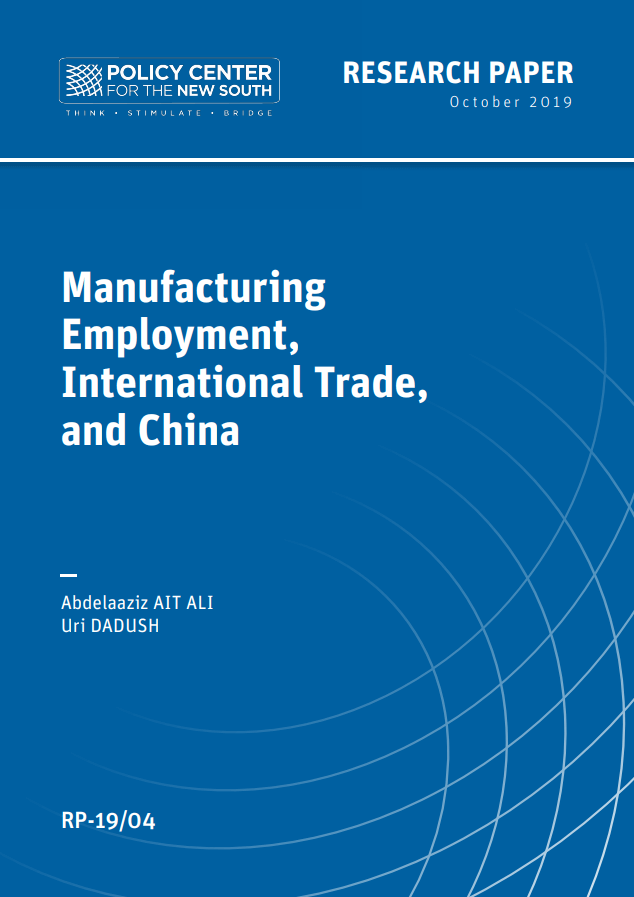External Publication
Manufacturing employment, international trade, and China
The decline in manufacturing employment is often seen as a major reason for rising inequality, social tensions, and the slump of entire communities. With the rise of national populists and protectionists in recent years, the issue has become even more prominent.
The objective of this paper is to better understand the evolution of manufacturing employment across the world. Manufacturing value added has grown rapidly since 2000, at least matching world GDP growth, even after the global financial crisis, reflecting mainly rising demand for manufactures especially in developing countries. However, manufacturing employment increased at only a slow pace, both before and after the global financial crisis. Manufacturing employment growth provided only about 10% of the new jobs needed to compensate for losses in agriculture and the growth of the active population. Most of the net job creation in manufacturing was in China, while most countries – both developing and developed – saw manufacturing employment decline as a share of total employment and several, including all or nearly all advanced countries, saw an absolute decline. The remarkable economic transformation in China has brought shifts in employment within the country, which were far larger, in fact of a different order of magnitude, than in other countries, entailing the redeployment towards manufacturing of tens of millions of workers, mainly drawn from agriculture. But, because China tends to consume much of the manufactures it produces, especially since the financial crisis, its increased integration into world trade is not at the root of the manufacturing employment stagnation in the rest of the world. In the sample of the countries we examined, including the United States, the increase in labour productivity in manufactures, due to automation and improved methods, was a far more important cause of employment decline than shifts in the manufacturing trade balance, contrary to a commonly held view. We find only weak evidence that the size of the manufacturing sector – measured in different ways — is associated with rapid economic growth. Several countries have grown at a reasonable pace without seeing a large increase in the relative size of their manufacturing sector. While the growth of labour productivity in the manufacturing sector is higher than that of the economy as a whole on average, several economies saw economy-wide labour productivity grow faster than labour productivity in manufacturing, including several countries in East Asia.






